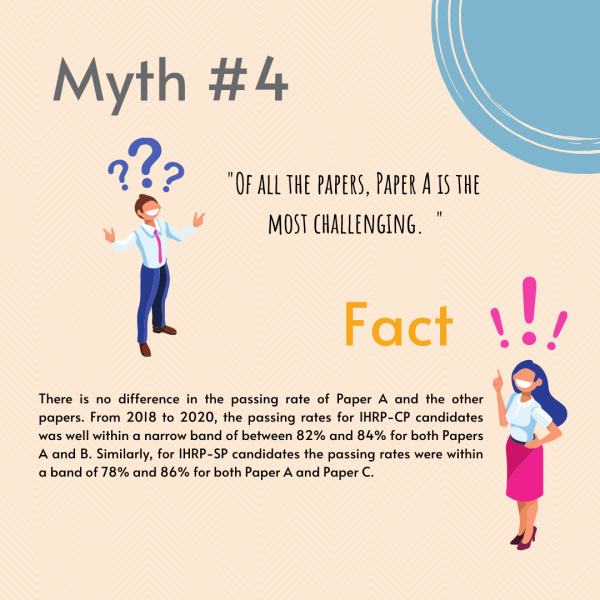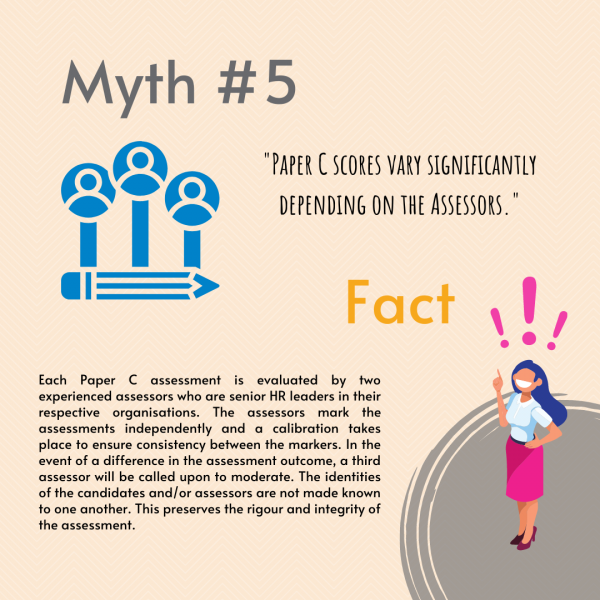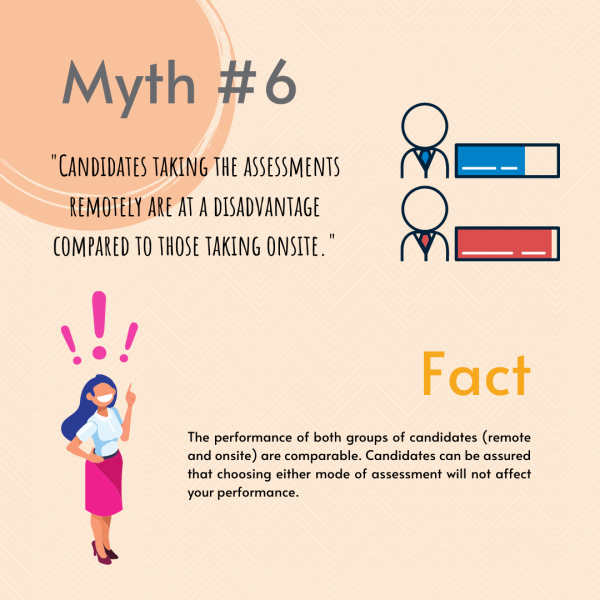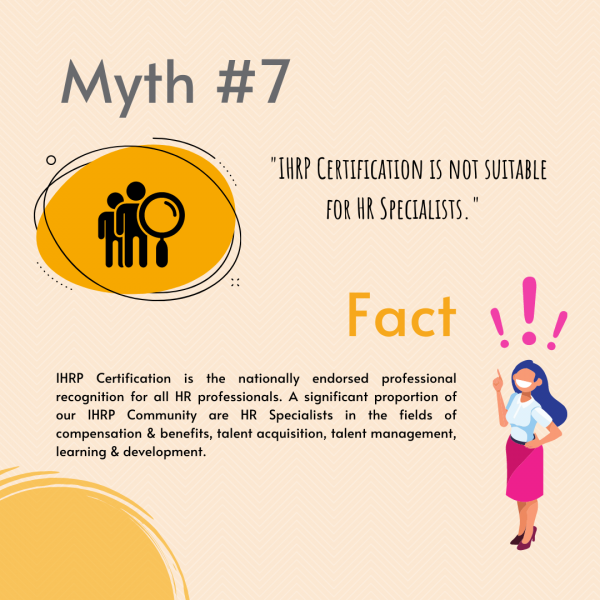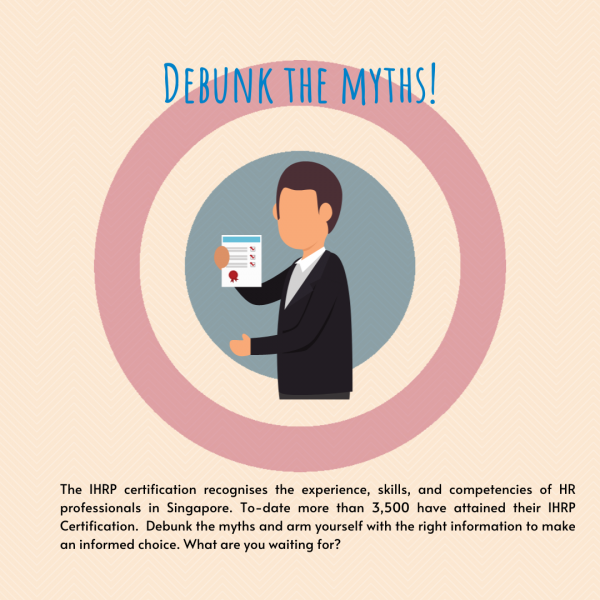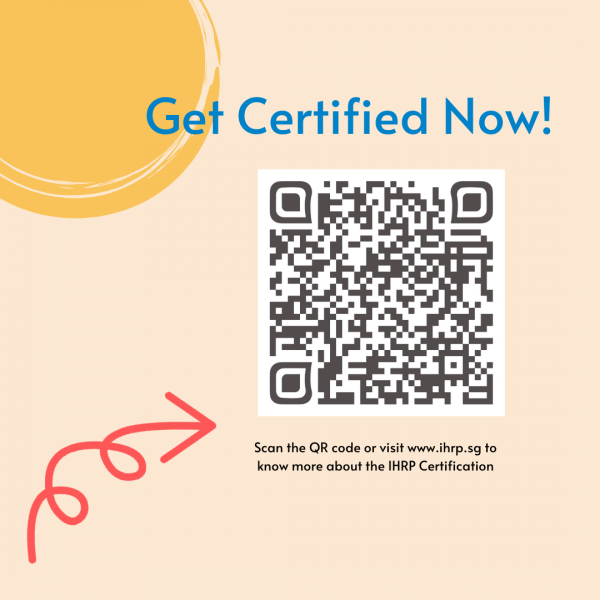Busting 7 Myths about IHRP Certification
Over 3,500 HR Professionals have attained the IHRP National HR Certification since 2017. We have delved into our records to demystify the 7 common myths about IHRP Certification.
Myth 1: There is a higher chance of getting IHRP Certification with a HR qualification (degree or diploma).
Fact: Our analysis shows that there are no significant differences in performance between those with HR qualifications and those without HR qualifications. This is true across all papers and all certification levels.
The IHRP Certification assessment is not a test of HR knowledge per se. It is a holistic assessment – scenario-based questions are used to determine the candidate’s ability to apply competencies at the workplace. As such, those without HR qualifications are not at a disadvantage.
Myth 2: IHRP Certification is not applicable for Regional HR as only local employment law is assessed.
Fact: IHRP Certification is based on the IHRP Body of Competencies that is aligned to international HR bodies such as AHRI, CIPD and SHRM. The Situational Judgement Tests (SJTs) incorporate hypothetical situations (both local and regional) to assess competencies that may be interpersonal (e.g., communication, teamwork), intrapersonal (e.g., emotional stability, adaptability), or intellectual (e.g., technical knowledge, continuous learning). Even Paper A (Employment Law and Regulations) is based on universal principles that apply both to local and regional settings.
Myth 3: Private sector candidates perform better than those from public sector.
Fact: There are no significant differences in the performance of candidates across the private and public sectors. This is true across all papers and all certification levels.
Myth 4: Of all the papers, Paper A is the most challenging.
Fact: There is no difference in the passing rate of Paper A and the other papers. From 2018 to 2020, the passing rates for IHRP-CP candidates was well within a narrow band of between 82% and 84% for both Papers A and B. Similarly, for IHRP-SP candidates the passing rates were within a band of 78% and 86%. for both Paper A and Paper C.
For more details about the passing rates for each cohort and certification level, please click here.
Myth 5: Paper C scores vary significantly depending on the Assessors.
Fact: Each Paper C assessment is evaluated by two experienced assessors who are senior HR leaders in their respective organisations. The assessors mark the assessments independently and a calibration takes place to ensure consistency between the markers. In the event of a difference in the assessment outcome, a third assessor will be called upon to moderate. The identities of the candidates and/or assessors are not made known to one another. This preserves the rigour and integrity of the assessment.
Myth 6: Candidates taking the assessments remotely are at a disadvantage compared to those taking onsite.
Fact: The performance of both groups of candidates (remote and onsite) are comparable. Candidates can be assured that choosing either mode of assessment will not affect your performance.
Myth 7: IHRP Certification is not suitable for HR Specialists.
Fact: IHRP Certification is the nationally endorsed professional recognition for all HR professionals. A significant proportion of our IHRP Community are HR Specialists in the fields of compensation & benefits, talent acquisition, talent management, learning & development.
Debunk the myths!
The IHRP certification recognises the experience, skills, and competencies of HR professionals in Singapore. To-date more than 3,500 have attained their IHRP Certification. Debunk the myths and arm yourself with the right information to make an informed choice. What are you waiting for?
Here is a quick look at the IHRP Exam Statistics!







